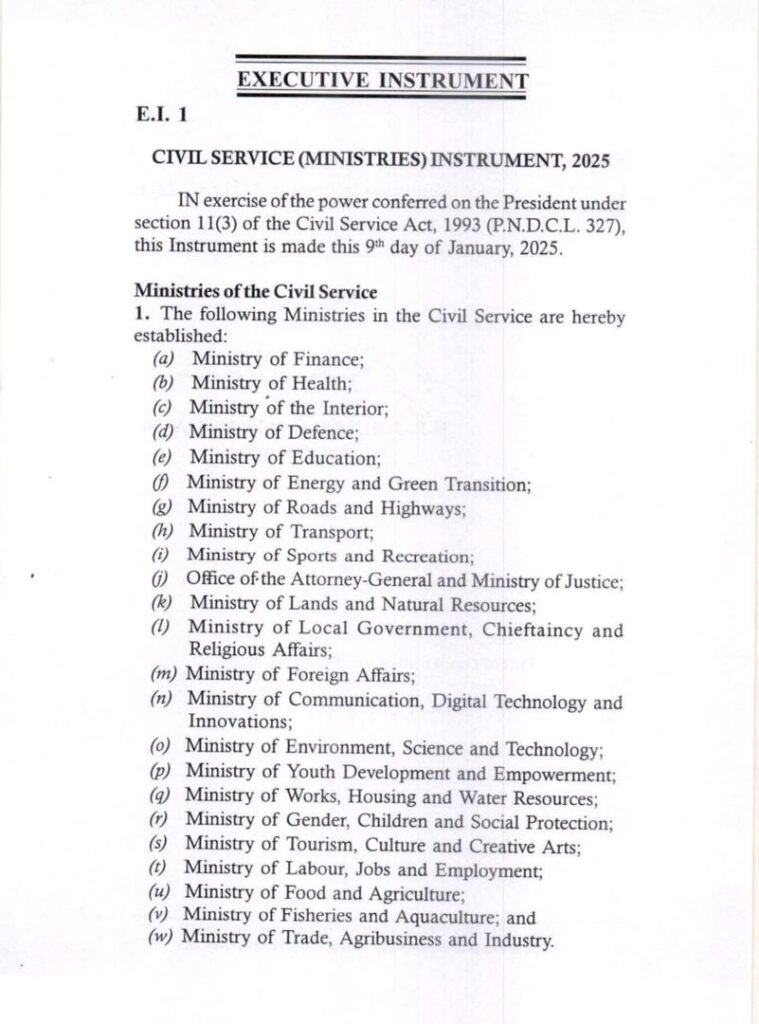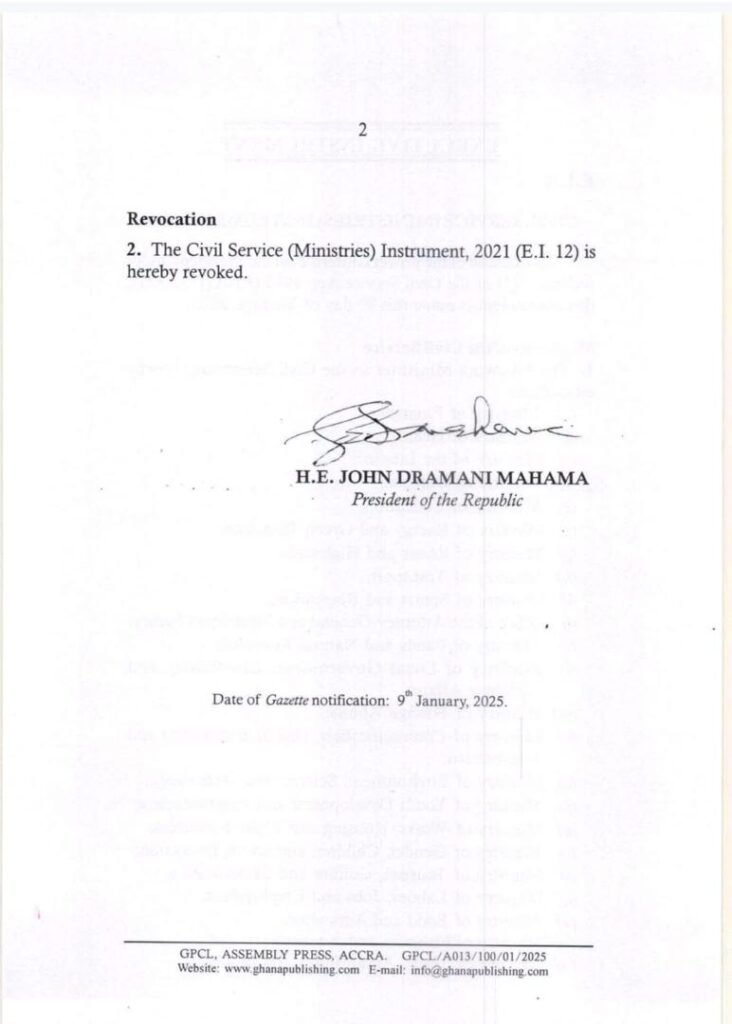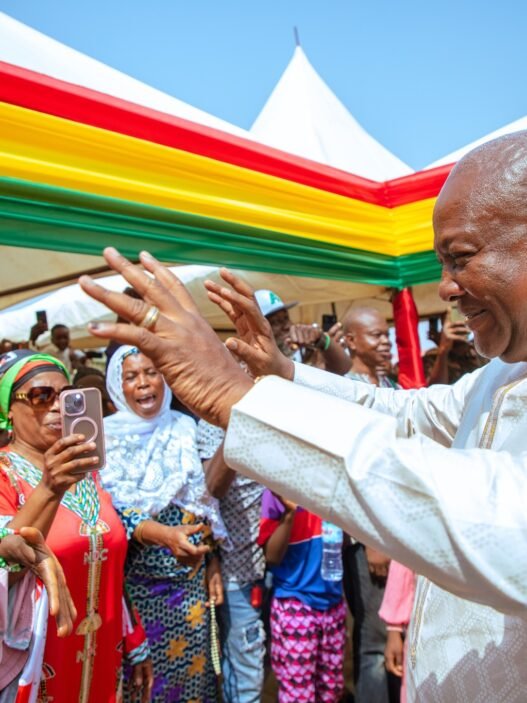President John Dramani Mahama, through Executive Instrument (E.I. 1), has announced a significant reduction in the number of government ministries from 30 to 23. This decision, made on January 9, 2025, marks a pivotal step in streamlining governance, enhancing efficiency, and reducing public expenditure.
The restructured ministries aim to align with the administration’s strategic vision for economic recovery, youth empowerment, environmental sustainability, and good governance.
List of Ministries Established
The new ministries as outlined in the Civil Service (Ministries) Instrument, 2025, are as follows:
- Ministry of Finance
- Ministry of Health
- Ministry of the Interior
- Ministry of Defence
- Ministry of Education
- Ministry of Energy and Green Transition
- Ministry of Roads and Highways
- Ministry of Transport
- Ministry of Sports and Recreation
- Office of the Attorney-General and Ministry of Justice
- Ministry of Lands and Natural Resources
- Ministry of Local Government, Chieftaincy, and Religious Affairs
- Ministry of Foreign Affairs
- Ministry of Communication, Digital Technology, and Innovations
- Ministry of Environment, Science, and Technology
- Ministry of Youth Development and Empowerment
- Ministry of Works, Housing, and Water Resources
- Ministry of Gender, Children, and Social Protection
- Ministry of Tourism, Culture, and Creative Arts
- Ministry of Labour, Jobs, and Employment
- Ministry of Food and Agriculture
- Ministry of Fisheries and Aquaculture
- Ministry of Trade, Agribusiness, and Industry
Strategic Realignment of Ministries
Key highlights of the restructuring include:
- Energy and Green Transition: Reflecting Ghana’s commitment to sustainable energy and climate action.
- Youth Development and Empowerment: Prioritizing youth-focused policies to address unemployment and capacity-building.
- Communication, Digital Technology, and Innovations: Enhancing Ghana’s digital transformation agenda.
- Works, Housing, and Water Resources: Integrating infrastructure and water resource management for holistic development.
- Trade, Agribusiness, and Industry: Supporting industrialization and agribusiness growth to bolster Ghana’s economic transformation.
Revocation of Previous Structure
The 2025 Instrument revokes the Civil Service (Ministries) Instrument, 2021 (E.I. 12), implemented under the previous administration.
Significance and Impact
President Mahama’s decision to restructure the ministries underscores his administration’s commitment to:
- Reducing Bureaucracy: Streamlining operations to improve efficiency and responsiveness.
- Cutting Costs: Reducing public expenditure associated with a bloated government structure.
- Enhancing Service Delivery: Focusing on critical areas like youth development, climate change, and innovation.
Public and Political Reactions
Political analysts and civil society organizations have lauded the move as a necessary step to reduce waste and improve governance. However, the opposition has raised concerns over potential job losses within the public service and challenges in integrating various portfolios.
Conclusion
This bold restructuring sets a clear tone for President Mahama’s administration, emphasizing pragmatism, innovation, and fiscal discipline. It remains to be seen how effectively the revamped ministries will deliver on their mandates to drive Ghana’s growth and development.
Read the Gazette below:






















